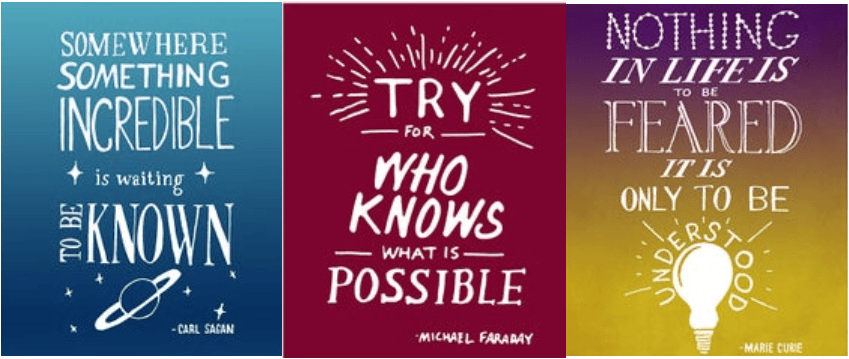Science



At St John the Baptist, our vision is to give children a science curriculum which enables them to confidently explore and discover the world around them, in order to develop a deeper understanding of the world in which we live.
Through a hands-on, inquiry-based curriculum, children will experience the joy of having wonderful ideas, exploration and investigation – that is, the joy of finding out.
Children will also be taught key science skills, through whole class learning, encouraging children to ask as well as answer scientific questions; use a variety of data, graphs, pictures and photographs; using ICT to enhance learning; discussions in class and real life science activities.
We believe that these opportunities will ensure that children at St John's are confident, life-long learners who will explore the world around them and, perhaps, be the scientists, innovators and discoverers of tomorrow.
WHY do we teach this subject? (What does it add to the education of each child?)
Our core aim is to support children to “Explore God’s amazing universe…”
An understanding of Science is fundamental to children’s exploration of the world around them. At St John's we believe that a good Scientific education is based on lots of first-hand experience and exploration. Core Scientific knowledge is taught through direct teaching, experimentation and exploration. Questions and problem solving skills are at the heart of this exploration.
A good Scientific education also unlocks opportunities for children and young people to study at higher levels in the future and Scientific knowledge and skills are highly valued in the employment market.
WHAT do we teach?
We follow the National Curriculum for Science using an investigative approach which includes aspects of Biology, Chemistry and Physics in each year group.
We aim to deliver a curriculum that allows our children to develop knowledge and understanding in these areas throughout their Primary years.
What are our aims? What knowledge, skills and understanding do we want children to have on leaving St John's?
The ability to think independently and raise questions about working scientifically and the knowledge and skills that it brings.
Confidence and competence in a range of practical skills, and the ability to plan and carry out scientific investigations.
Excellent Scientific knowledge and understanding of the areas studied which is demonstrated in written and verbal explanations, solving challenging problems and
reporting scientific findings.
A passion for Science and its application in past, present and future technologies
We have outlined details of what Science looks like throughout school so that you can see how children progress in their skills and knowledge during their time at St John's.
The files show what that looks like in each year group.
| Name |
|---|
There are lots of ideas for continuing your home learning in Science. Please find some brilliant materials in the files below.
There are also some brilliant websites that you could try (again check with an adult before accessing online content) ...
STEM have some great activities to do at home, including: designing a boat using playdough or kitchen foil and observing the phases of the moon over time.
The Primary Science Teaching Trust has created some activities for children which allow them to have fun with science using everyday, household resources.
TTS have brilliant free activity books to download for all primary age children. These include not just science, but activities across all subjects. Hours of fun and learning to be had here.
WOW SCIENCE have an abundance of activities, games, videos and experiments to keep children motivated and enthused by science.
And finally, there are some great activities in this little book of experiments. Have fun!
Why not try an engineering challenge ...



















